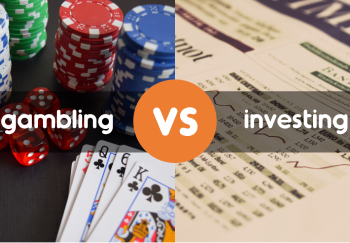Smart Investing with Global Diversification at SqSave
June 13, 2019
Internet social media has shifted the way news or facts are delivered and perceived – with profound implications for the way we should invest.
I am asked by many these days about the implications for their investments because of the news frenzy about the USA-China trade war. I can understand the anxiety. Yet, I need to remind ourselves about our human short-term memories.

There are so many other issues that matter, but we focus on is what is currently topical – and ironically, not necessarily relevant. As emotional humans, we tend to focus on what we worry about – especially if others we interact with have the same anxieties. We tend to group ourselves with others who share the same emotional tendencies. Quite understandable. However, there is a bigger picture at stake.
What we perceive as an individual or a cohesive group of individuals may block out relevant facts or possibilities.
These days, the internet-driven social media phenomenon has simply accelerated the effects of opinion making and responses, even by governments – with profound changes in the political landscape. But that’s another topic.
In the investment world, those of us who follow economic and investment news will tend to read from the same broad “trusted” sources. In the days when news followed the human cycle of facts collection, writing, editing, vetting, publishing and distribution to your doorstep or newsstand every 12 or 24 hours, decisions could be made with more deliberation. These days, with the internet platform of instant information, as distinct from facts or even news, anyone can influence others in an instant and at a click. Surely, investment markets as we know them today have become more correlated without a master conductor. Indeed, they have.
All you have to do is observe the wild swings in investment markets from New York to Tokyo. As if fish swimming in shoals, funds ebb and flow in “risk-on, risk-off” pendulum fashion – exacerbating sharp swings in global investment markets. This is the reason why active or “alpha” managers have fared poorly and stock-pickers or value investors (like I was once) are flummoxed by stocks rising and falling in the same waves.
Of course, anyone can cite at least one active manager who has done well. But that’s not the whole truth. Even the alpha manager who claims the trophy is nervous that the next winner is not likely to be the same. They know truthfully without shouting it out, that the evidence shows that no single winner can win consistently. “Chance” and “luck” are words they detest – preferring “skill” and “experience”. Yet, many more active managers have lost despite skills and experience. The truth is always hard to swallow.
Rising market correlation is making it difficult to squeeze out alpha returns.
It used to be easy when information flowed slowly – so that a few can capitalise on the time gap before others realised what the information meant for investments. I know. I was once an investment analyst seeking out information and knowledge with time to analyse and communicate to clients before others. Now, that time advantage has been wiped out by the internet. Investment markets tend to move nowadays with alternating cycles of greed and fear – driven mainly by short-term sentiment about the direction of the global economy and little else.
This explains why I get so many questions about the same topic – and the same topic changes in almost orchestrated unison every time the social media headlines shift focus.
Heightened market correlation is the enemy of alpha seeking managers.
So as an investor, one should acknowledge the truth and adopt a more relevant investment strategy to recognise that markets are swinging up and down between two fat tails of long-run returns.
Why? Technology-driven high frequency trading and the massive inflow of funds into index-based products such as Exchange-Traded Funds (ETFs) has probably contributed to the increased market correlations across the world. ETF creation and redemption form a one trillion US dollar market today. The buying and selling of all index constituents tracked by the ETFs suggest that stock prices move more closely together.
A study by Professor Jeffrey Wurgler of New York University for the USA National Bureau of Economic Research shows how the simple inclusion of stocks in specified benchmark indices profoundly affects the stocks’ performance to the extent that they move in tandem with other index members irrespective of differences in their earnings or relative valuations. The study found that, on average, the share prices of stocks added to the S&P 500 between 1990 and 2005 increased almost 9 per cent upon their inclusion, with the effect rising over time because of more inflows into the index fund. Conversely, stocks deleted from the S&P 500 index tumbled by even more. This supports the school that argues for index-linked investing as a better investment strategy. And the market is voting with trillions of dollars flowing from active to passive funds.
Other reasons cited for increased market correlation is the globalisation of financial markets and economic interdependencies. Markets are less nationalistic than the post-cold war era with global and multinational companies listing in stock markets different from their original nationalities.
What you can do in response to heightened market correlation is to take a longer-term view of the market.
Short term investing to squeeze returns is more like betting. So you need to know your risk appetite and your more like betting capacity to take on short term betting risks. For those who truly want to invest, you need to ask yourself if you can really track, monitor and predict risks when information now flows too fast for human analysis and action.
Besides taking a longer-term view, you should manage risks by focusing on diversification instead of trying to pick winners.
As swings in markets can be pronounced due to heightened market correlation, diversification can mitigate volatile and unpredictable markets.
In the past, as a stock picker, I could “diversify” by betting on a pool of 10 to 20 stocks. But I would not be able to track stocks beyond my geographic knowledge and sleeping time zone! So my clients were constrained by my human limitations. Nonetheless, every competitor faced the same constraints
By diversifying to hold a spread of investments that are likely to react differently to the same market or economic conditions, you reduce the chances of your investment portfolio taking a big hit when markets swing one way or the other.
If your investment portfolio is likened to a pizza, diversification is akin to assembling a pizza with different flavoured slices and varying the size of each slice. Do review our video about SqSave and the pizza analogy.
Today, machine learning artificial intelligence is at our disposal – thanks to ready availability of real-time data.
Yet few traditional investment managers are changing their old ways. Quite understandable when we see how old they are and how humans are resistant to change – especially when the clients are also unaware of new possibilities.
The evidence is clear. If the market is enjoying a bull run as a wave, how smart does an investment manager have to be? It is when the market is in a bear phase, that the truth and fallibility of human investment managers become clear. I hope you don’t have to experience that first-hand.
In the face of heightened market correlations, you should use artificial intelligence and machine learning to invest smarter.
Thanks to the combined quad effects of massive low cost computing power, cheap cloud storage, fast internet connectivity and ubiquitous social networks, AI has moved several layers from basic logic automation to machines that can learn for itself without being explicitly programmed to, and to machines can network via cyberspace to reinforce each other to since complex problems with a hint of machine imagination. This rapid evolution of simple AI to “Machine Learning” is the “why” I advocate replacing the human investment manager.
Our SqSave AI does not sleep. It is able to track real-time data and predicts risks and returns 24/7. SqSave AI does not discriminate or ignore you based on how much or how little you invest. We use Nobel Prize winning Modern Portfolio Theory (MPT) and apply real time data to find the optimal combination of investment assets that is likely to generate the highest return for the risk you decide to take. We track up to 574,000 real-time investment factors and analyse up to 21 million datasets. We offer you global diversified investing across 5 continents, 15 assets classes and 35 countries covering over 2,000 investment choices. No knowledge needed. Only your risk profile.
It’s time you adopt “Smart Investing” at SqSave!
More Articles more

Psst! Are you investing, gambling or speculating?
Apr 5, 2019 | Victor Lye, CFA CFP®
Many people say they invest. But they
are really gambling or speculating!
What about you?
Read more

Is Risk Profiling Just Another Questionnaire?
April 11, 2019 | Victor Lye, CFA CFP®
Investing should be about targeting the risks first before chasing returns. I propose three fundamentals to consider. Read more

What You Should Know About Unit Trusts
April 18, 2019 | Victor Lye, CFA CFP®
Not everyone has the same gung-ho risk attitude. Yet there is a fear of losing out when you hear boasts from people who say how much money they made from investing. Read more